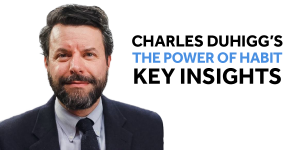
Insight 9


Good leaders embrace a crisis as a moment for change.
“Crises are such valuable opportunities that a wise leader often prolongs a sense of emergency on purpose.”
Administrators at NASA had tried for decades to revamp the agency’s safety protocols. But it wasn’t until the 1986 explosion of the shuttle Challenger that they were successful. It is often under the worst of circumstances that change occurs because those previously reluctant to reform see how desperately it’s needed.
The same is true of President Obama’s 2008 stimulus plan. The financial collapse allowed Obama to pass a $787 billion stimulus plan despite a reluctant Congress. Congress also passed healthcare reform and a number of consumer and wage protection acts. It was the largest burst of policy change since The Great Society and New Deal.
How do these one times crises, however, lead to improved organizational habits? It seems counterintuitive that the decision of one person to promote one goal can result in shared authority. Good leaders don’t seize power in crises. Rather, they seize the opportunity for new possibilities. For example, Howard Schultz used Starbuck’s ailing profits to mobilize changes in customer service after returning as CEO.
“During turmoil, organization habits become malleable enough to both assign responsibility and create a more equitable balance of power. Crises are so valuable, in fact, that sometimes it’s worth stirring up a sense of looming catastrophe rather than letting it die down.”
VIDEO 9: Watch Charles explain how a tragedy forced the London Underground to reevaluate their organizational habits.